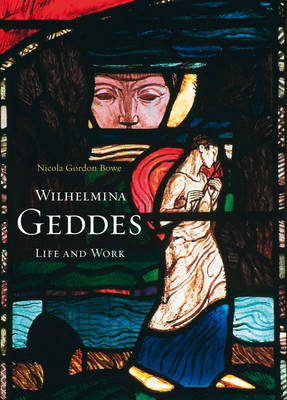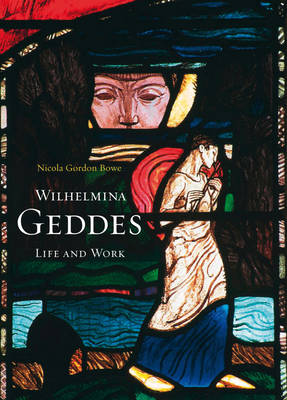
- Retrait gratuit dans votre magasin Club
- 7.000.000 titres dans notre catalogue
- Payer en toute sécurité
- Toujours un magasin près de chez vous
- Retrait gratuit dans votre magasin Club
- 7.000.0000 titres dans notre catalogue
- Payer en toute sécurité
- Toujours un magasin près de chez vous
Description
When she died in 1955, the Belfast-born Wilhelmina Geddes was described as 'the greatest stained glass artist of our time' whose monumental directness of treatment (whatever the scale) constituted 'a revival of the mediaeval genius.' Yet, a full appreciation of her powerful figurative art was limited to a relative few. Her work can still be viewed in a variety of locations across Ireland, from Dublin's Hugh Lane Gallery and St. Anne's Church to buildings in Fermanagh, Belfast, Loughrea, and Larne, as well as internationally in Canada, Belgium, New Zealand, and England. Although critics praised the deeply spiritual and uncompromising skill of her craftsmanship - 'Nowhere in modern glass is there a more striking example of a courageous adventure in the medium' (her 1919 Duke of Connaught War Memorial in Ottawa), her 'power of simplifying without loss of meaning' (her great Wallsend Crucifixion window of 1922), and 'the fine sensibility and deep intelligence' of her majestic 64-light Te Deum rose window to the king of the Belgians (1934-388) - her often out-of-the-way windows need to be seen in situ. Battling with ill health, like her better-known pupil and contemporary, Evie Hone, Wilhelmina Geddes became a major figure in the Irish Arts and Crafts movement and 20th-century British stained glass revival, a medieval-modernist of rare intellect, skill, and aesthetic integrity. This profusely illustrated contextual study of her life and work draws on hitherto unpublished primary sources to represent her unique artistic achievement during the turbulence of two world wars. *** "...a work of great beauty and tremendous impact." --Times Literary Supplement *** "An extraordinarily rich, evocative and psychologically penetrating study of a powerful artist and the times she lived through. Nicola Gordon Bowe has restored Wilhelmina Geddes to a central place in the Arts and Crafts movement, and drawn a vivid portrait of the difficult life and personality of an original and uncompromising talent ..." --R.F. Foster, Professor of Irish History, University of Oxford [Subject: Biography, Art History, Irish Studies]
Spécifications
Parties prenantes
- Auteur(s) :
- Editeur:
Contenu
- Nombre de pages :
- 506
- Langue:
- Anglais
Caractéristiques
- EAN:
- 9781846825323
- Date de parution :
- 29-10-15
- Format:
- Livre relié
- Format numérique:
- Genaaid
- Dimensions :
- 196 mm x 264 mm
- Poids :
- 2199 g

Les avis
Nous publions uniquement les avis qui respectent les conditions requises. Consultez nos conditions pour les avis.






